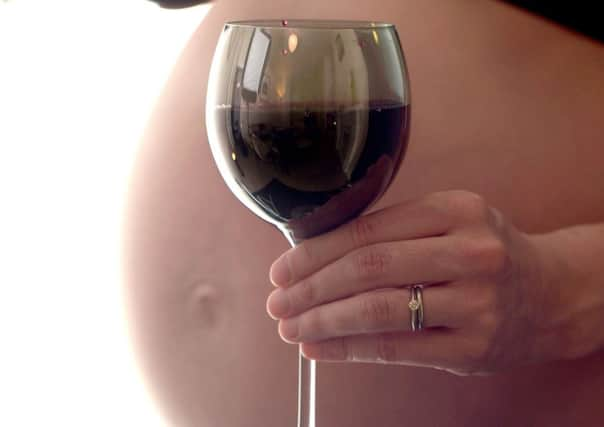‘Alcohol and pregnancy don’t mix’


Fetal Alcohol Spectrum Disorder (FASD) is the name given to a group of permanent conditions that a person can develop when he or she is exposed to alcohol before they are even born. These conditions can include behavioural issues, and birth defects. As FASD is entirely preventable it is important for people to protect babies whenever possible.
By avoiding alcohol for the duration of your pregnancy, including the pre-pregnancy stage, you can ensure your baby will be born without alcohol related brain damage.
Advertisement
Hide AdAdvertisement
Hide AdThe message being delivered by Elaine Torrance, chair of the Alcohol and Drug Partnership, is: “FASD is 100% avoidable and I am very clear that we need to increase awareness and understanding of this issue locally. Women who are pregnant or trying to conceive should avoid alcohol altogether.”
Dr Diana Leaver, NHS Borders community paediatrician, said: “Children affected by FASD often show a variety of learning difficulties and behavioural problems and may be regarded as being wilful or undisciplined, when in fact they have little control over their behaviour. These children are not being naughty; it is the damage to their brain and nervous system caused by alcohol which means they truly cannot help behaving in this way.”
NHS Borders head of midwifery, Nicky Berry, said: “Everyone can play a role in raising awareness and preventing fetal alcohol harm. Families in particular can be supportive, especially when they are made aware of the long term health benefits.”
She added: “The earlier we can provide factual information and practical guidance to prospective mothers and their partners, the better the outcome will be for their baby. Any woman who is concerned about alcohol in pregnancy should speak to their midwife”.
Advertisement
Hide AdAdvertisement
Hide AdInformation, support and advocacy to families caring for a child affected by FASD can be provided by contacting [email protected].
For more information on alcohol and drugs services in the Borders, visit www.badp.scot.nhs.uk.